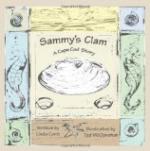Peter didn’t say nothing. Then he fetched a long breath and motioned with his head to Cap’n Jonadab and me. We see we weren’t invited to the family reunion, so we went out and shut the door. But we did pity Peter; I snum if we didn’t!
It was most an hour afore Brown come out of that room. When he did he took Jonadab and me by the arm and led us out back of the barn.
“Fellers,” he says, sad and mournful, “that—that plaster cast in a crazy-quilt,” he says, referring to Montague, “is a cousin of mine. That’s the living truth,” says he, “and the only excuse I can make is that ’tain’t my fault. He’s my cousin, all right, and his name’s Hank Schmults, but the sooner you box that fact up in your forgetory, the smoother ’twill be for yours drearily, Peter T. Brown. He’s to be Mr. Booth Montague, the celebrated English poet, so long’s he hangs out at the Old Home; and he’s to hang out here until—well, until I can dope out a way to get rid of him.”
We didn’t say nothing for a minute—just thought. Then Jonadab says, kind of puzzled: “What makes you call him a poet?” he says.
Peter answered pretty snappy: “’Cause there’s only two or three jobs that a long-haired image like him could hold down,” he says. “I’d call him a musician if he could play ‘Bedelia’ on a jews’- harp; but he can’t, so’s he’s got to be a poet.”
And a poet he was for the next week or so. Peter drove down to Wellmouth that night and bought some respectable black clothes, and the follering morning, when the celebrated Booth Montague come sailing into the dining room, with his curls brushed back from his forehead, and his new cutaway on, and his wrists covered up with clean cuffs, blessed if he didn’t look distinguished—at least, that’s the only word I can think of that fills the bill. And he talked beautiful language, not like the slang he hove at Brown and us in the gents’ parlor.
Peter done the honors, introducing him to us and the Stumptons as a friend who’d come from England unexpected, and Hank he bowed and scraped, and looked absent-minded and crazy-like a poet ought to. Oh, he done well at it! You could see that ’twas just pie for him.
And ’twas pie for Maudina, too. Being, as I said, kind of green concerning men folks, and likewise taking to poetry like a cat to fish, she just fairly gushed over this fraud. She’d reel off a couple of fathom of verses from fellers named Spencer or Waller, or such like, and he’d never turn a hair, but back he’d come and say they was good, but he preferred Confucius, or Methuselah, or somebody so antique that she nor nobody else ever heard of ’em. Oh, he run a safe course, and he had her in tow afore they turned the first mark.
Jonadab and me got worried. We see how things was going, and we didn’t like it. Stumpton was having too good a time to notice, going after “Labrador mack’rel” and so on, and Peter T. was too busy steering the cruises to pay any attention. But one afternoon I come by the summerhouse unexpected, and there sat Booth Montague and Maudina, him with a clove hitch round her waist, and she looking up into his eyes like they were peekholes in the fence ’round paradise. That was enough. It just simply couldn’t go any further, so that night me and Jonadab had a confab up in my room.




